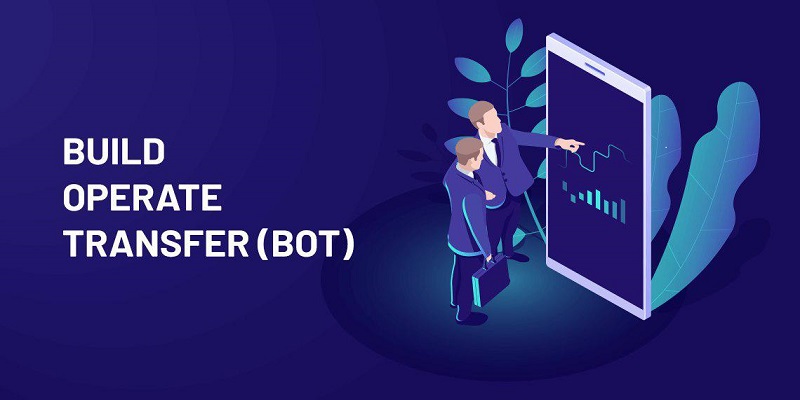Build-Operate-Transfer Contract
Introduction:
Build-Operate-Transfer (BOT) contracts are usually used in the fields of building infrastructure such as power plants, telecommunications, airports, highways etc. BOT agreements usually involve two main parties, the government or a governmental organization and a private sector contractor. The government or the governmental organization confers the concession of the building and operation of a specific project to a private sector contractor. In return for this, the private sector contractor becomes responsible for financing, designing, supplying materials, building, testing and managing the project. During the operation period the private sector contractor recovers its costs and interest of its investment by selling the project’s output. At the end of the operation period, ownership of the facility is transferred to the governmental organization free of charge. The private contractors, when engaging in these types of agreements, also toned to obtain different licenses in order to produce goods and services. These licenses are used by the private contractor and after all the stages have been completed, the project is transferred to the government. The licenses must be allocated to the project in question as to ensure that the government, upon receiving the project, is not to encounter with any problems. This type of partnership is considered as a fast and cost-efficient way of cooperation between the government and the private sector.
Structure of BOT Contracts:
-
- Government (Employer);
- Investor (Private contractor);
- Funders (Financing providers)
- Subcontractors;
- Raw material suppliers;
- Buyers of the project products;
- Operation contractors and spare parts suppliers;
Features of BOT Contracts:
-
- The government allows the private sector through a contract to engage in the fields that are traditionally state-owned matters and to participate in the provision of public services.
- The private sector is responsible for financing the project, even if government accept some of the costs.
- The responsibility of project design and engineering, procurement of equipment and machinery, construction and commissioning of the project is upon the private sector, although it can delegate each step of the work to a smaller contractor.
- The private sector is obliged to utilize the project optimally; it means that the private sector must provide the project goods and services in good quality. Therefore, the use of appropriate technology and management is expected in this regard.
- Depreciation (Amortization) of capital and profit of the private sector is covered through the proceeds from the sale of goods and the provision of services. The government may in some cases guarantee the purchase of goods or services. One of these methods is to buy part of the goods in advance.
- The private sector should submit the project at the time of delivery in a manner that is both operational and technically sound. On the other hand, the private sector is also responsible for keeping the project usable during the period of operation until its delivery to the government.
- At the end of the operation period, the project will be transferred to the government free of charge.
Basis and Conditions (Terms) of Conclusion the BOT Contracts:
-
- It is essential that the project is profitable and the investment by the private sector is economically justified.
- The government should be able to meet the needs of the private sector by granting the necessary licenses and ensuring investment security.
- There must be some sponsors supporting the private sector in these large investments. Sponsors are financial and credit institutions, banks, and even foreign investors who accept investment risks because of the project’s profitability.
Use of BOT Contracts:
In lengthy and capital-intensive projects, the government may use BOT contracts to raise funds and outsource its activities to the private sector.in fact it can be argued that BOT contracts are the most prominent form of government-private partnership. The most important areas where the BOT contracts are used are as follow:
-
- Construction of railway lines
- Airport Construction
- Highway Construction
- Construction of the dam, quay, petrochemical complex, oil rig or power plant
- Any other project that requires relatively large capital and time.
Bayan Emrooz Law Firm renders services to foreign and Iranian natural and legal entities in the field of contract law, including consulting, for setting up BOT Contracts. Having an experienced and specialized legal staff, Bayan Emrooz is ready to provide the needed legal services in respect to investment and JVs, sale and purchase in accordance with Incoterms, exclusive and non-exclusive agency, distributorship, technology transfer, license, franchise, turn-key, buy-back, finance, consultancy services, service contracts, EPC, transportation and logistics, insurance, MOUs, LOIs, BOT Contracts and etc. in Iran.





